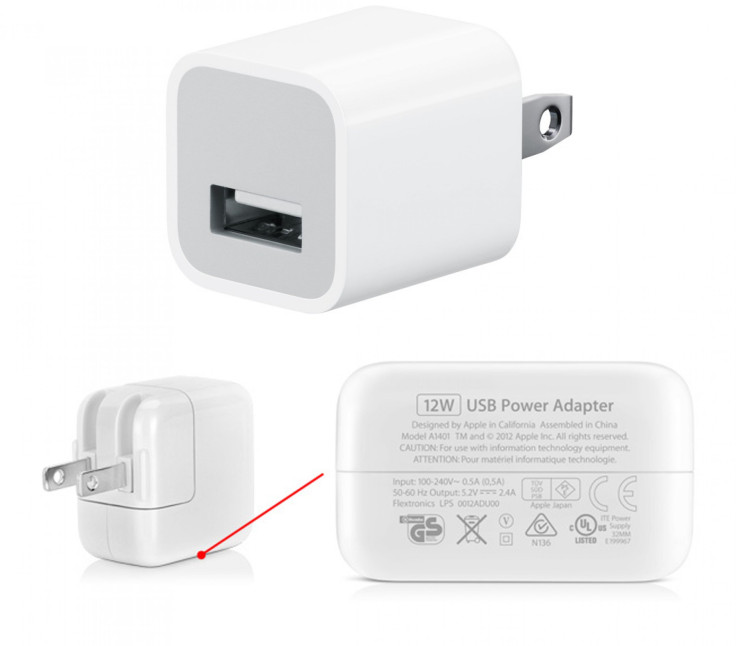Apple On Counterfeit Adapters: A ‘Takeback Program’ To Replace Them In Exchange For An Official One

Reacting to recent concerns about the safety of its products stemming from the use of counterfeit and third-party adapters for iOS devices, Apple (NASDAQ:AAPL) announced it will begin a new trade-in program for unauthorized USB power adapters.
Apple, on Monday, launched the “USB Power Adapter Takeback Program,” which will allow customers to buy “properly designed adapters,” and noted on its support page that adapters made by companies not vetted by Apple might not be designed properly, and consequently, could cause safety issues.
Thanks to the new trade-in program, starting Aug. 16, customers having concerns about their USB power adapters can take the component to Apple's retail store or to an authorized service agent, where it will be disposed of in an “environmentally friendly way.” Customers also will have the option of buying an official USB power adapter as a replacement, at a discounted price of $10 or its approximate equivalent in local currency.
According to Apple, the special pricing is limited to one adapter for each iPhone, iPad, and iPod, and is valid until Oct. 18. And, to avail the offer, users have to bring the USB power adapter along with an iPhone, iPad, or iPod touch to a company outlet or authorized service provider for serial number validation.
“Due to the complexity of testing required to detect an unsafe or counterfeit adapter, Apple Retail and Apple Authorized Service Providers cannot advise you on the authenticity or safety of your adapter,” the company said. “We are offering this special takeback program for any USB power adapter made for use with iPhone, iPad, and iPod for which you have concerns.”
Apple’s move comes after multiple reports surfaced recently saying two iPhone users in China were electrocuted while using counterfeit power adapters.
Wu Jian Tong, a 30-year-old man reportedly was injured from an electric shock, in July, when he was plugging in an iPhone 4 that was supposedly connected to an authorized third-party charger. Wu's condition stabilized after he was admitted to a hospital, but he spent more than 10 days in a coma, according to reports.
A similar incident, also in July, took place when Ma Ailun, a 23-year-old woman in China's western Xinjiang region, was electrocuted and died when she tried to answer a call on her iPhone 5 while it was being charged. Media reports said the woman might have been using a charger not made by Apple or an approved vendor.
Following the incidents, Apple issued a statement on its China website, warning customers of the danger of using third-party adapters and recommended them to identify and use only company-certified adapters.
© Copyright IBTimes 2025. All rights reserved.






















